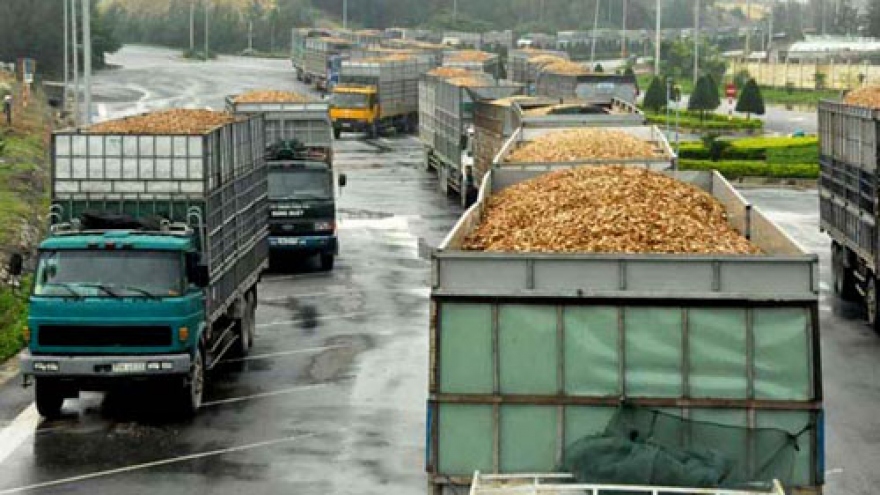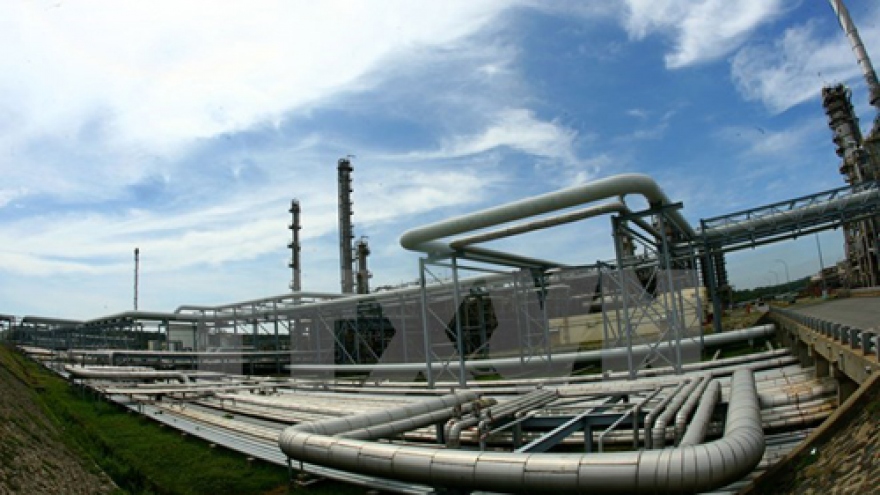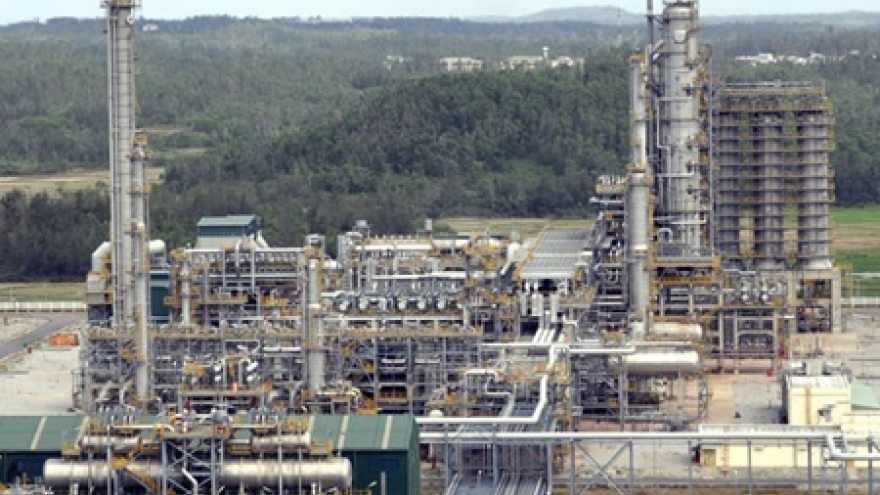Special incentives helps Dung Quat Oil Refinery avoid US$1bil loss
Without the government’s incentives, Vietnam’s first oil refinery of Dung Quat would have had losses of VND27,600 billion (over US$1 billion) since 2010, when it began operating.
Built from 2005 in order to change the position of Vietnam, a country specializing in exports of crude oil, the Dung Quat Oil Refinery operated four years later, using crude oil from the White Tiger oil field. At that time, the total investment of this project exceeded US$3 billion.
In mid-2015, the project to upgrade and expand the refinery was approved with a total investment of US$1.82 billion, scheduled to be completed in 2021. Thus, the total investment for this project amounts to nearly US$5 billion, to raise the capacity to 8.5 million tons a year.
No preferential incentives, losses of over US$1 billion; with incentives, loss of US$50 million.
In 2008, the Binh Son Refinery Co., Ltd (BSR) was established with 100% investment of the Vietnam Oil and Gas Group (PetroVietnam), with the aim to operate the production and business activities of the Dung Quat oil refinery. On May 30, 2010, Dung Quat officially transitioned to commercial operation.
 |
With huge investment and special preferential policies, Dung Quat refinery has had losss since it began commercial operation in 2010.
In a report submitted to the government in mid-2015, PetroVietnam revealed the huge loss of the plant since its operation. In 2010, the refinery incurred losses of nearly VND3,200 billion, in 2011 nearly VND4,800 billion, in 2012 over VND6,400 billion, in 2013 over VND6,000 billion and in 2014 VND7,136 billion. Its total losses since 2010 is up to VND27,600 billion (equivalent to US$1.2 billion).
However, thanks to the preferential policy which allows the refinery to retain import taxes, its losses fell to VND1,300-VND3,000 billion in 2011 and 2012, before earning profits of nearly VND3,000 billion in 2013, thanks to keeping the import taxes of up to VND8,856 billion.
In 2014, this refinery also retained nearly VND7,200 billion of import taxes but due to the strong fall of crude oil prices, it had to extract VND1,900 billion to the provision fund so its profit was estimated at nearly VND150 billion. Thus, despite the special incentives, the refinery still had losses of VND1,048 billion since its opening.
In 2015, the company announced VND6,000 billion of profit, but this figure largely came from tax incentives.
The incentives for Dung Quat Refinery
The incentives for Dung Quat are high. In November 2009, the Government issued a decision allowing the Binh Son Refinery Co., Ltd. to annually retain an amount of money equivalent to 3% of import duty on petrochemical products, 5% on import tax on LPG products and 7% of import duty on petroleum products.
Dung Quat will not be subsidized in the case of the import tax rates are lower than the preference level.
However, with this offer, in 2011-2012, Dung Quat still had big losses because the petroleum import tax rates at that time were lower than the value of preferences. In these circumstances, in July 2012, PetroVietnam proposed and the Government approved the new incentive for Dung Quat.
Under this, Dung Quat can retain 3-7% of import tax, and if the import tax rates are lower than incentive levels, it will be compensated and this policy will last until 2018.
Dung Quat also enjoys corporate income tax rate of only 10% in 30 years, including full tax exemption within the first five years and 50% of tax reduction in the next nine years.
PetroVietnam has the responsibility to identify, approve and grant additional charter capital for Dung Quat in accordance with current law.
Accordingly, PetroVietnam uses sources from oil and gas profits to grant additional charter capital for Binh Son Refinery Co., Ltd.
In June 2015, PetroVietnam asked the Government to extend the incentives for Dung Quat Refinery until 2027. If it is approved, the incentive policy for Dung Quat will last up to 17 years.
In early 2016, under the Agreement on Trade in Goods of ASEAN (ATIGA), import duties on diesel, and Jet A1 fuel fall to 0% while to 10% for Dung Quat. This refinery said it could not compete with the imported goods due to higher taxes.
However, with the current incentives, Dung Quat Refinery has to pay import tax rate of 3% for diesel and Jet A1 and only 13% for petrol, instead of the 10%-20%.
Especially for petrol, Dung Quat holds an advantage compared to imported products, because it can retain 7% of import tax.
Inadequacy of production capacity and efficiency of Dung Quat Refinery is more apparent when it is compared with other refineries in the region like those in Singapore, as these plants have to import crude oil, pay taxes and high shipping costs.
Theproducts of this refinery are in stock because they cannot compete with imports, leading to a risk of closure can be "urgent" as the President of Binh Son Refinery Co., Ltd Nguyen Hoai Giang said.
However, with the constant losses despite large incentives in recent years, the crux of the problem is probably not in the tax policy.
Binh Son Refinery Company Limited (BSR) has charter capital of VND35,000 billion. It is one of the six largest enterprises in Vietnam.
Since it was put into operation at the end of 2015, the company produced 36 million tons of petroleum products of all kinds, earning net sales of over VND710,000 billion, and paying VND120.000 billion to the state budget.



